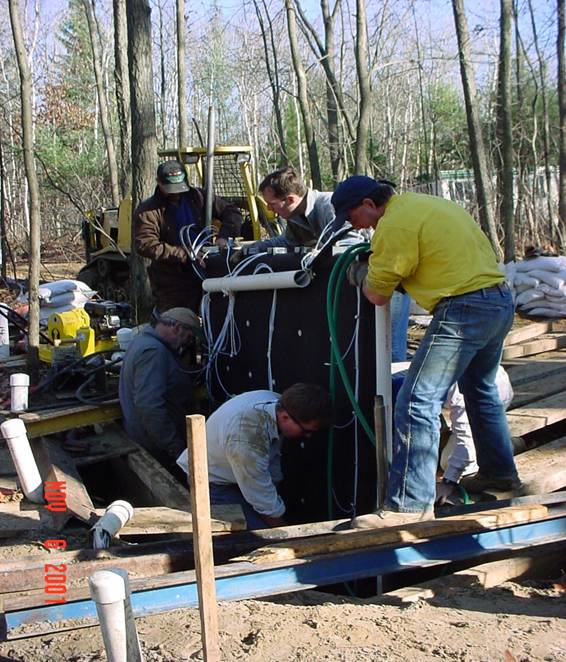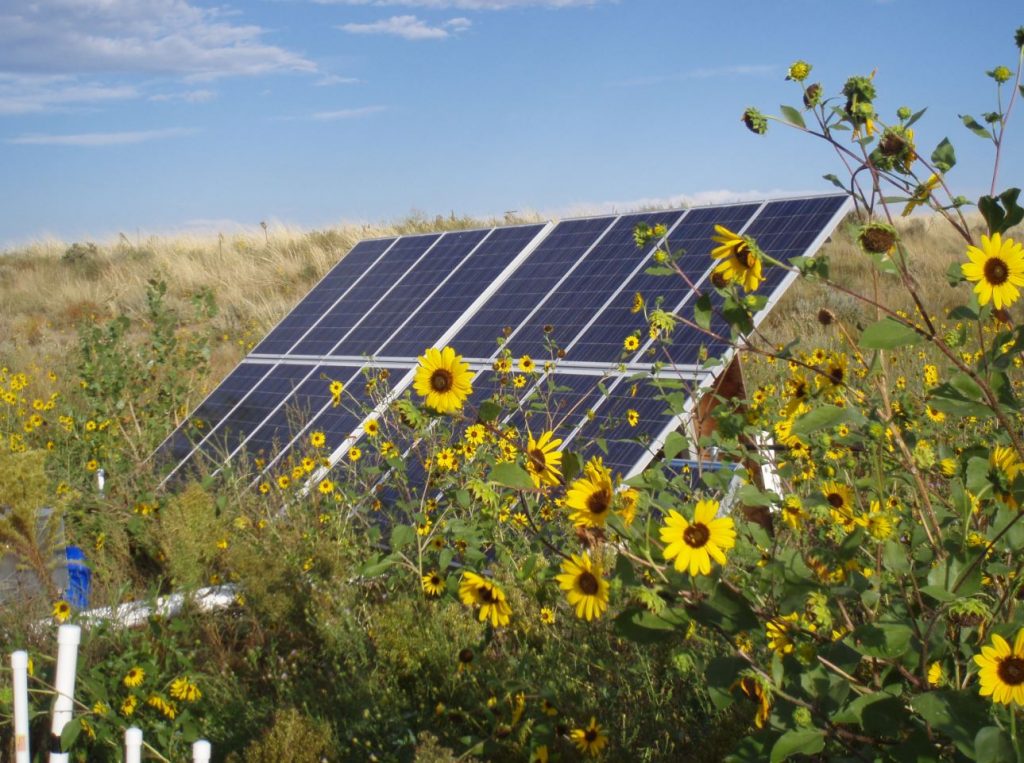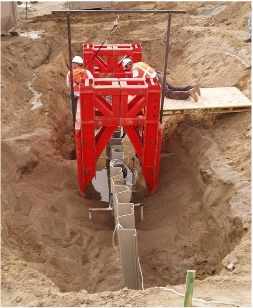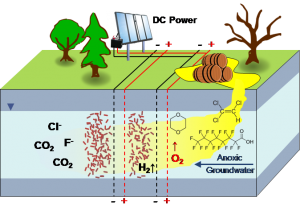Commercial Technologies
ZVI-Clay Soil Mixing
ZVI-Clay Soil Mixing is an in situ treatment technology for remediation of chlorinated solvent source zones. Through the use of conventional soil mixing techniques, reactive zero valent iron (ZVI) and stabilizing agents (e.g., bentonite) are admixed with soils impacted with chlorinated solvents. ZVI drives contaminant degradation, while stabilizing agents reduce hydraulic conductivity of treated soils. Through use of soil mixing to deliver reactive materials into contaminated soils, the reactant is well-distributed throughout the treated soil body and brought into close contact with all contaminant mass. Furthermore, by combining contaminant mass reduction with reduced groundwater flow, ZVI-Clay can achieve a multiple-order-of-magnitude reduction in contaminant discharge from treated soils. This technology is well-suited for remediation of high-concentration source zones, including those containing chlorinated solvent DNAPL.
Electrolytic Reactive Barrier



Bioelectrochemical Water Treatment
Electrochemical water treatment is an emerging technology that is gaining considerable interest in the removal of persistent contaminants. Electrochemical systems offer several advantages over other water treatment approaches, such as the absence of the need for auxiliary chemical addition, straightforward adjustment to variations in the influent composition and flow rate, modular and flexible design, small footprint, and easy combination with other technologies. Through the coupling of electrochemical with biological processes, we have substantially lowered the energy costs and material (electrode) usage associated with electrochemical water treatment. This technology can be implemented both in situ and ex situ, and is currently used for bioelectrochemical oxidation of 1,4-dioxane and bioelectrochemical reduction of perchlorate at contaminated field sites.
